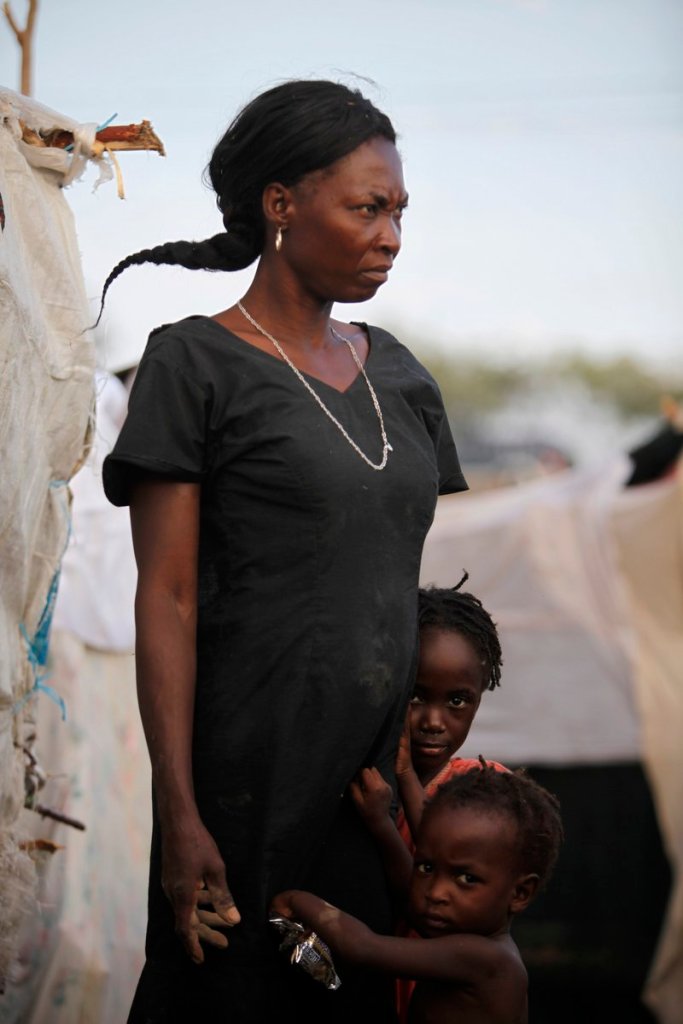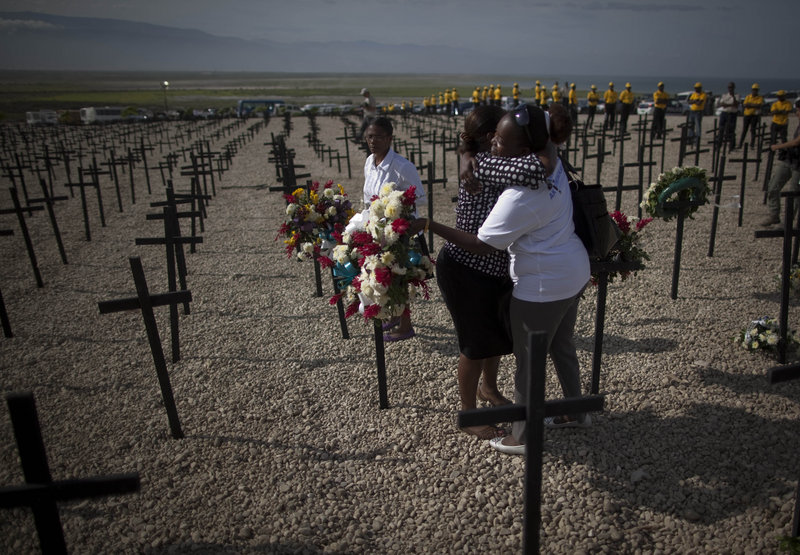PORT AU PRINCE — One of the largest and most costly humanitarian aid efforts in history saved many lives in the aftermath of last January’s earthquake but has done little to ease the suffering of ordinary Haitians since then.
As U.S. officials, donor nations and international aid contractors applaud their efforts – all the latrines, tents and immunizations – the recipients of this unprecedented assistance are weary at the lack of visible progress and doubtful that the billions of dollars promised will make their lives better.
“We have just enough to survive but not enough to live,” said Dieusin St. Vil, a tailor whose ancient sewing machines lie crushed in the rubble.
St. Vil – who sleeps with his family in a moldy tent in a dangerous flood plain near the new U.S. Embassy – and 810,000 other Haitians in 1,150 camps get by on the bare minimum. Oxfam contractors service his latrines; a German group pays for minimal health care and runs a little school; and the musician Wyclef Jean’s charity brought tents and delivers clean water.
Every few weeks, a contractor for the U.S. Agency for International Development who pays “cash for work” comes by and hires a dozen people, who earn less than $5 a day to shovel soggy garbage off the streets.
It is the largest jobs program in Haiti, having employed 350,000 people. But the work is short-term, usually a week or two. Total cost for the year: $19 million, or less than $50 a worker after overhead.
“From the Haitian government, nothing,” St. Vil said. “For the people in the tents, there is no future, just today.”
Since the Jan. 12, 2010 quake, the roads are worse, electricity spotty and rice costs more. Carnival is being canceled again. There are still few jobs. President Rene Preval is missing from public view. Political paralysis grips the country.
The results of the mismanaged, chaotic Nov. 28 presidential elections remain a mystery. After uncovering troubles with the conduct of the vote, a monitoring team from the Organization of American States is set to recommend that the government-backed presidential candidate be eliminated from the second round of voting, the Associated Press reported Monday.
The international community spent more than $3.5 billion on immediate disaster relief and pledged to spend $4.5 billion more in recovery aid in 2010 and 2011, with an additional $1.1 billion in debt relief for the destitute Haitian government.
At the Fantastik barbershop, Clenor Fleurent was trying to get his generator started. No electricity, no clippers. “With my own eyes I don’t see progress. I don’t see anything,” he said. “Progress is for special people.”
International humanitarian organizations, the nongovernment groups that form a kind of parallel government in Haiti, were welcomed as a saviors in the weeks after the 7.0-magnitude earthquake leveled vast swaths of the capital, killing 230,000 and injuring 300,000 more.
Now many people look at the organizations with distrust.
“The only people making money in Haiti are the NGOs who use the Haitian people to raise money and pay for their big cars,” Fleurent the barber said.
The dream of 100,000 temporary shelters – versus tarps and tents – has not been realized.
Send questions/comments to the editors.




Success. Please wait for the page to reload. If the page does not reload within 5 seconds, please refresh the page.
Enter your email and password to access comments.
Hi, to comment on stories you must . This profile is in addition to your subscription and website login.
Already have a commenting profile? .
Invalid username/password.
Please check your email to confirm and complete your registration.
Only subscribers are eligible to post comments. Please subscribe or login first for digital access. Here’s why.
Use the form below to reset your password. When you've submitted your account email, we will send an email with a reset code.